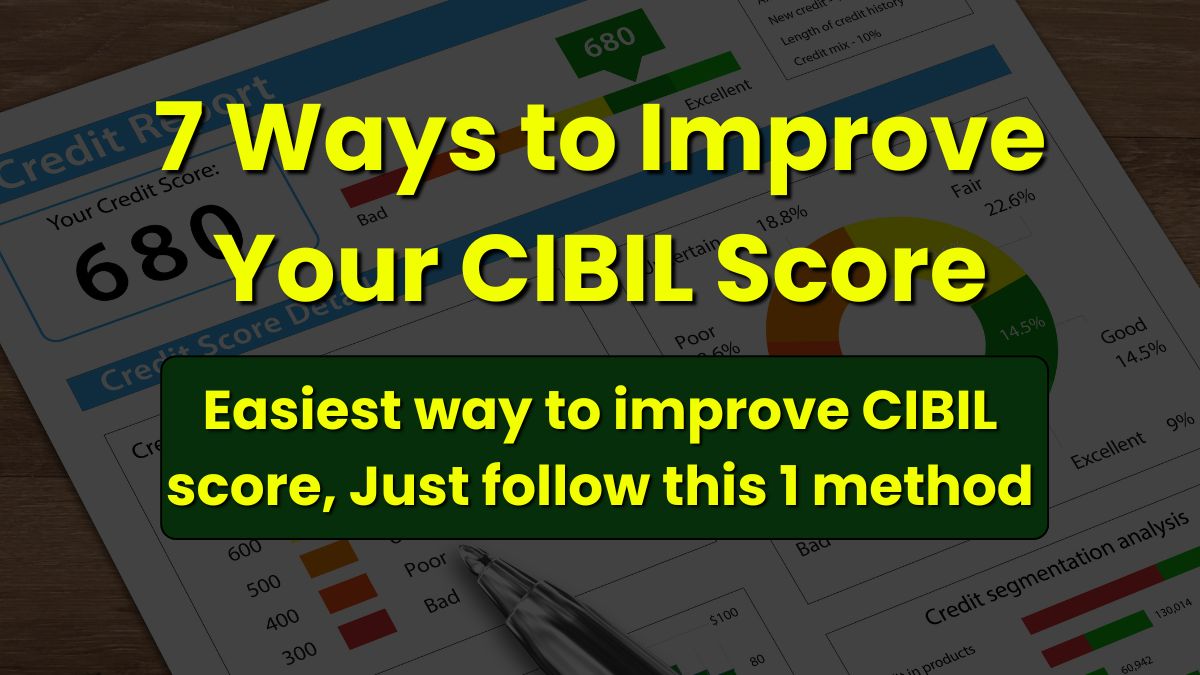Has there been a situation when you were denied a loan or a credit card due to a low CIBIL score? This is a common situation people usually face, leaving them thinking of what to do next. Most of the time, it is usually because of unpaid EMIs, multiple ongoing loans, and other financial blunders that may have happened in the past. Poor CIBIL scores appear as something blocking all your dreams and hopes in life.
However, do not worry- it is a wonder that improving your CIBIL score is all possible with a few strategies and some patience. This blog will guide you through simple, actionable habits that you can use to raise your CIBIL score back to its appropriate level and regain confidence in your financial life.
Why Cibil Score Matters
Your score is translated into real-life numbers. Your CIBIL score translates your worth in credit. The first thing banks and lenders check when you apply for a loan or credit card is your CIBIL score. A good CIBIL score (which generally starts from around 750) will increase the chances of your loan getting approved and lower your interest rates at the same time. A low score means your applications may be rejected, or you would pay higher for borrowing funds. Therefore, keeping a good CIBIL score is very important for your financial welfare.
7 Ways to Improve Your CIBIL Score Easily
Improvement of the CIBIL score is a slow process, but with persistent efforts, one becomes eligible after a period of 6-12 months. Here are seven tried-and-proven ways to get you started:
- Timely EMI and Credit Card Bill Payments
Timely payments are the raw deal for increasing one’s CIBIL score. A single missed payment can adversely affect your score. Reminders or auto-pay should be set to avoid missing a due date. - Limit Credit Card Usage to 30-40%
Using too much of the available limit can affect your score. Make good use of not more than 30-40% of your limit, in case the limit given is 1 lakh, spend only Rs. 30,000-Rs. 40,000. This shows lenders that they can trust you with the credit. - Settle Outstanding Dues
In case you have any active loans or outstanding bills from a credit card, make the payment as soon as you can. Clearing old dues shows financial capacity and will aid in further improvement in score. - Avoid Making Multiple Applications for Loans or Credit Cards
A hard inquiry is generated each time an application for a loan or credit card is made. The excessive number of inquiries may reflect your possible distress and with it goes your score. Apply only where and when it is absolutely needed. - Ensure to Check Your CIBIL Report Regularly
Errors really can knock the life out of your score. You should check your CIBIL report at least once in 6 months and get the information corrected in case of any discrepancies. Notify CIBIL or the concerned bank at the earliest. - Try for a Low-limit Credit Card First
If you have no credit card, now is the time to apply for a low-limit credit card. Use it sparingly and pay in full on time. This builds a positive cycle that helps your score with the passage of time. - Joint Loans: Proceed with Caution
Going for a joint loan? Make sure you trust that person. Should they fail to pay, your CIBIL score will also be affected. Always choose your co-borrowers very carefully.
Why Do CIBIL Scores Drop?
The reasons for a low CIBIL score need to be understood to avoid making these mistakes. Here are the chief reasons that Contribute To the Deterioration of Your Score:
- Missed Payments on EMIs or Credit Card Bills: Late payments are a raised flag for lenders.
- High Credit Utilization: Maxing out your credit limit would really hurt your score.
- Frequent Loan Application: Making applications all too often indicates financial instability.
- Long Due Payments: Pending bills or loans for a long time can greatly harm your score.
- Erroneous Information In Credit Reports: Wrong information showing with respect to loan status or outdated information will cause the score to drop.
With these instructions in mind, try to maintain and nourish your CIBIL score.


